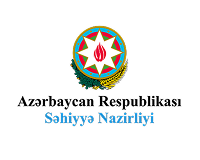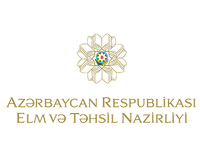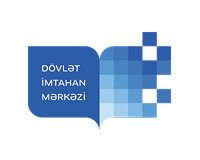THEMATIC PLAN OF LECTURES FOR STUDENTS OF THE FACULTY OF GENERAL MEDICINE ON THE SUBJECT «CHILDREN'S DISEASES »
VI COURSE (XI SEMESTER)
|
№ |
Topics |
Hours |
|
1. |
Perinatal pathologies in newborns. Perinatal asphyxia, multiple organ damage. Clinical manifestation, differentialdiagnostics. |
2 |
|
2. |
Diseases of the cardiovascular system in children. Congenital and acquired heart defects. Cardiacarrhythmias. Differentialdiagnosis. |
2 |
|
3. |
Classification of kidney disease in children. Acute and chronic diffuse glomerulonephritis, pyelonephritis, pyelocystitis, acute renal failure. Clinicandintensivecareofacuterenalfailure. |
2 |
|
4. |
Diseases of the endocrine system in children. Diabetes mellitus. Diffuse toxic goiter, hypothyroidism. Features of the clinical course. Differential diagnosis. Modern principles of treatment. |
2 |
|
5. |
Hemorrhagic diathesis in children. Hemorrhagic vasculitis. Thrombocytopenic purpura. Etiopathogenesis. Clinic. Treatment principles. Acute leukemia and chronic myeloid leukemia in children. Thalassemia. Etiology. Clinical manifestation. Diagnostics. |
2 |
|
Summary |
10 |
|
THEMATIC PLAN OF PRACTICAL LESSONS FOR STUDENTS OF THE FACULTY OF GENERAL MEDICINE ON THE SUBJECT
«CHILDREN'S DISEASES»
VI COURSE (XI SEMESTER)
|
№ |
Topics |
Hours |
|
1. |
Perinatal pathologies. Differential diagnosis of perinatal pathologies. A modernapproachtotreatment. |
7 |
|
2. |
Features of water and electrolyte metabolism in children. Violations of acid-base balance. Acidosisandalkalosis, diagnosis, differentialdiagnosis, principlesofcorrection. |
7 |
|
3. |
Congenital and acquired heart defects. Cardiac arrhythmias in children. |
7 |
|
4. |
Acute and chronic glomerulonephritis in children. Clinical and laboratory diagnostics. Modern examination methods. Treatment. |
7 |
|
5. |
Pyelonephritis, pielocystitis, acute renal failure in children. Clinical and laboratory diagnostics. Modern examination methods. Development of a treatment plan. Emergency care for acute renal failure. Indicationsforhemodialysis, plasmapheresis. Dispensaryobservationplan. |
7 |
|
6. |
Diabetes mellitus in children. Features of the clinical course. Differential diagnosis. Modern principles of treatment. Diffuse toxic goiter in children, hypothyroidism. Features of the clinical course. Differentialdiagnosis. Modernprinciplesoftreatment. |
7 |
|
7. |
Acute and chronic adrenal insufficiency in children. Features of the clinical course. Differential diagnosis. Modern principles of treatment. Obesity in children. Nanism. Thymuspathology. Differentialdiagnosis. Modernprinciplesoftreatment. |
7 |
|
8. |
Primary and secondary immunodeficiency states. |
7 |
|
9. |
Congenital diseases with metabolic disorders in children. Galactosemia, glycogenosis, fructosemia. Pathogenesis, clinical aspects, principles of treatment. Phenylketonuria, hereditary diseases of lipid metabolism. Pathogenesis, clinical aspects, principles of treatment. |
7 |
|
10. |
Emergency conditions. Hyperthermic syndrome. Convulsive syndrome. Acute cardiovascular failure. Croup. Anaphylactic shock. Urticaria and Quincke's edema. Comatosecondition. |
7 |
|
11. |
Violations of hemostasis in children. Hemophilia, thalassemia, thrombocytopenic purpura. Disseminated intravascular coagulation syndrome. |
7 |
|
12. |
Acute and chronic leukemia. Lymphogranulomatosis. |
6 |
|
13 |
Basic principles of the children's polyclinic. Familiarization with the work of the local pediatrician. Children's polyclinic documentation. Features of the structure of the children's clinic. Principles of examination in a polyclinic. Clinical examination of healthy and sick children. |
6 |
|
14. |
The work of the office of a healthy child. Reception and examination of healthy children. The work of the immunological office. Vaccination calendar. Contraindications. Complications. Treatment and prevention. |
6 |
|
Summary |
95 |
|


 English
English Русский
Русский




